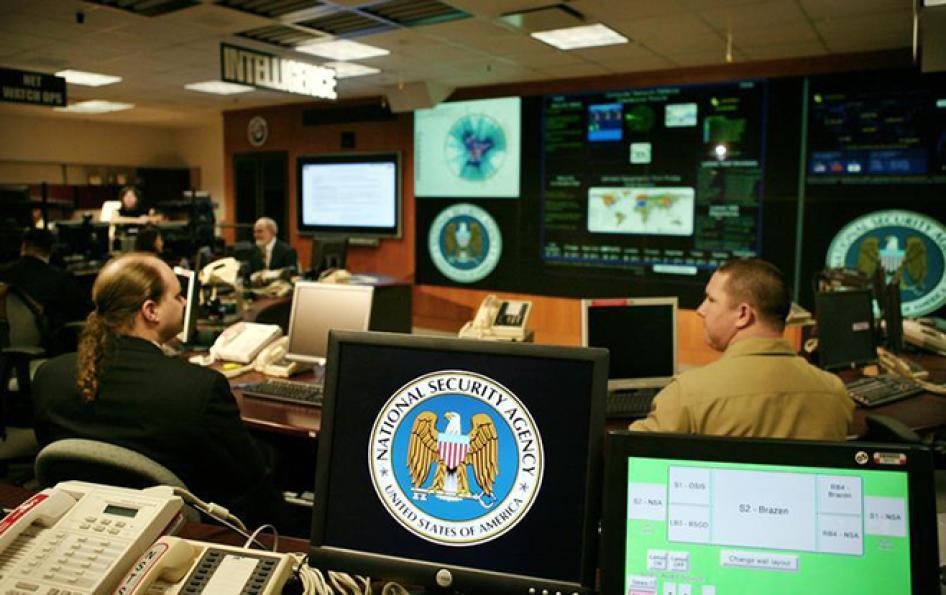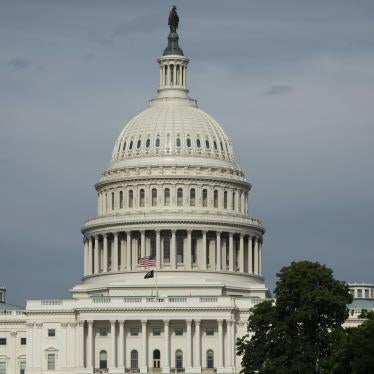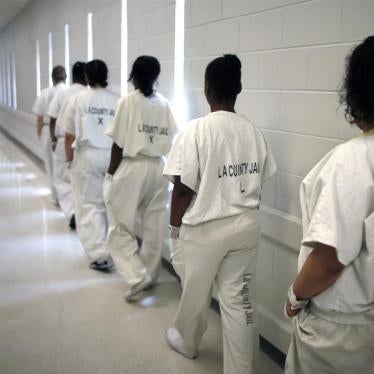(Washington, DC) – The hearing by the US House Judiciary Committee on March 1, 2017, about one of the broadest and most intrusive surveillance laws in the United States highlights the need for reforms to prevent executive branch abuses, Human Rights Watch said today.
Section 702 of the Foreign Intelligence Surveillance Act (FISA), the subject of the hearing, is the basis for at least two massive warrantless surveillance activities carried out by the National Security Agency (NSA). Through one, the PRISM program, the NSA gathers and stores potentially enormous amounts of private communications from US internet companies. The other, “upstream” scanning, appears to involve automatic government searches of virtually all of the communications that flow over crucial pieces of infrastructure that connect the US to the rest of the world. Human Rights Watch has previously highlighted the especially detrimental impact “upstream” searches may have on the US immigrant and border communities.
“As committee members on both sides of the aisle pointed out, the government has used Section 702 for surveillance programs that are outsized, unlawful, and ripe for abuse,” said Sarah St.Vincent, US national security and surveillance researcher at Human Rights Watch. “As the sunset deadline for Section 702 approaches, Congress should address the ways it can result in human rights violations.”
Section 702 is scheduled to expire on December 31, 2017, unless Congress renews it, setting up what is likely to be a heated battle over reforms. Several committee members, both Democrats and Republicans, expressed strong concerns about Section 702 and its consequences for civil liberties during the hearing. Committee member Jim Jordan suggested a need to view the government’s claims about the constitutionality of Section 702 activities with skepticism, while a range of other members raised legal concerns about major aspects of Section 702 surveillance.
Section 702 surveillance targets the communications of millions of foreigners, but the government also contends that it is entitled to sweep up Americans’ communications “incidentally.” The Office of the Director of National Intelligence has failed to respond to a bipartisan April 2016 letter from Judiciary Committee members asking for statistics about how common this “incidental” collection is and how many Americans have been affected.
Moreover, while the Foreign Intelligence Surveillance Court annually approves general procedures that are intended to provide certain limited protections to US citizens and lawful permanent residents, the government does not need to seek warrants for targets and the court does not review the government’s targeting decisions. Once the government has the data, the FBI can then conduct warrantless “backdoor” searches of it for law enforcement purposes, circumventing constitutional requirements that have long been foundational to protecting privacy and other rights under US law.
The December 31 expiration date for Section 702 creates an important opportunity for Congress to enact urgently needed fixes to the law, Human Rights Watch said.
Human Rights Watch is concerned not only about the disproportionate and unconstitutional nature of Section 702 surveillance, but also about the possibility that the government is using questionable legal interpretations to avoid notifying criminal defendants that Section 702 produced information for the investigations in their cases – which undermines fair-trial rights by preventing those defendants from challenging the lawfulness of the monitoring. Law enforcement agencies may even be concealing the fact that they have used Section 702 data by employing a technique known as “parallel construction” – the deliberate creation of an alternative explanation for how they found the evidence in question. This practice, which materials released by the government confirm, threatens the overall integrity of the US’ justice system.
“Congress should not consider re-authorizing Section 702 without thoroughgoing reforms to restore and protect human rights,” St.Vincent said. “House Judiciary Committee members were right to emphasize the risks, and they should follow up with changes to Section 702 that will uphold the integrity of the US justice system.”








